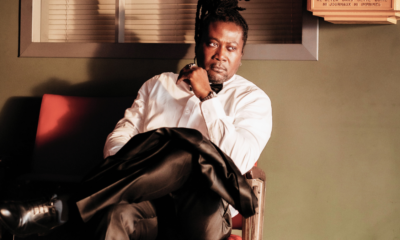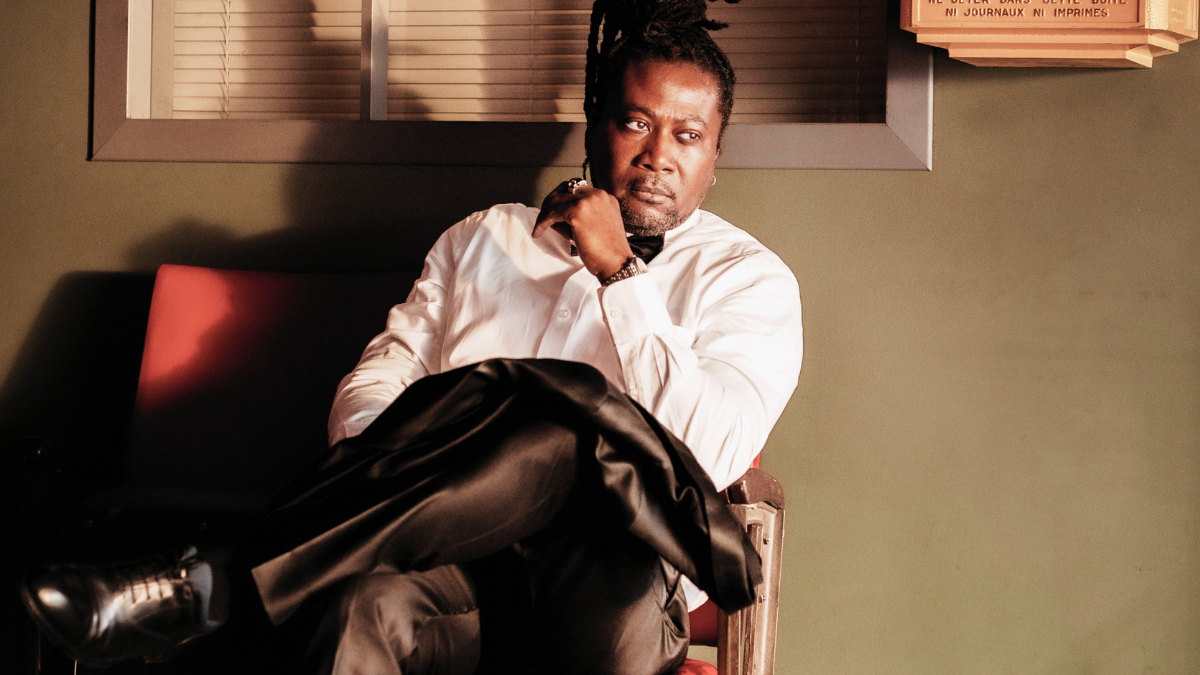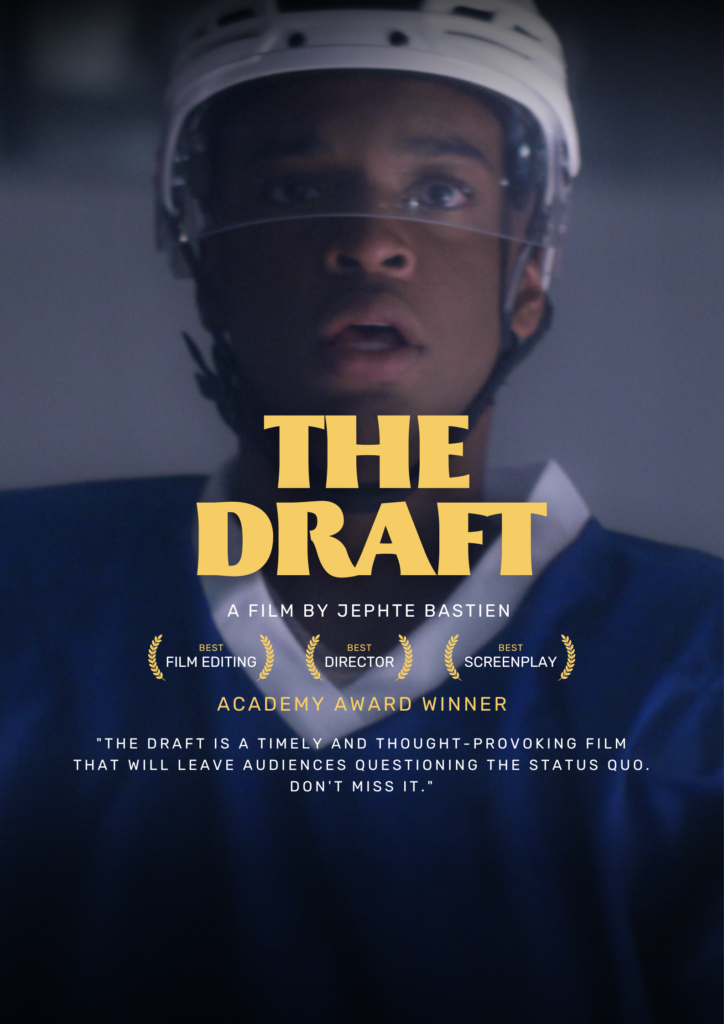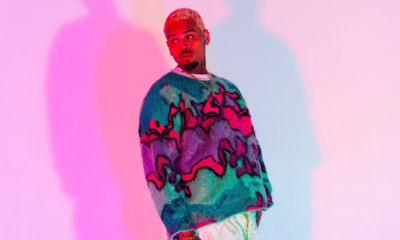Founded by Lamire Touré in 1987, Nuits D’Afrique is an annual festival in Montreal that really kicks off the summer. It takes place in July and runs for roughly two weeks of family oriented fun that enlightens, educates, and brings people together. The festival is a giant production that requires the blood, sweat, and tears of numerous individuals to make this more than 90 concert, activity filled spectacle run so successfully for several years. It is dedicated individuals like National Programming Director Hélène Dimanche, whose tireless efforts make Nuits D’Afrique possible year after year.
One would think that it would be extremely difficult to have the opportunity to perform at such world renowned festival but Hélène gives me insight into the festival and what you can do to perform on the same stage as Grammy Award Winners like Angelique Kidjo in the future.
“First, good music, second we look for world music”
TVM: Hélène comment allez-vous?
Hélène: Je vais très bien merci, et vous?
TVM: Très bien merci. Can you tell our readers a bit about yourself and what attracted you to Nuits D’Afrique?
Hélène: Well I was working in France and I had the chance to travel to Canada and I found an internship in communications at Festival Nuits D’Afrique and I fell in love with it. Mr. Touré is an amazing man and the company is equally as wonderful; it’s like a big family. There is no way you can find this kind of festival anywhere else. I’ve been working here for about 6 years now and I work with the programming of mainly local artists.
TVM: How does it work? Do you work towards the end result all year round?
Hélène: Actually the festival is only 15 days but it takes more than 6 months to make it happen because of all the logistics and the many things we deal with. Nuits D’Afrique isn’t the only festival, there is Production Nuits D’Afrique which are year round concerts that we invite international artists to perform at Club Balattou where there are 5 shows a week; it’s kind of the laboratory of the festival because we develop artists there and guide them towards furthering their careers. We also have Les Syli D’Or De La Musique Du Monde which is a contest for artists, especially Canadian ones, to help them start a good career.
TVM: In terms of artists that you book for the festival, do they need to have previous experience or can they be amateurs?
Hélène: We open the door to anyone we think may be great on stage. You need to be comfortable on stage, interact with the audience, etc. We give everyone a fair chance but if you win Les Syli D’Or you are guaranteed a spot at the festival. Like most of the concerts you’ll see artists who have 2 albums, some don’t have any and this is the first time there even performing on a big stage.
TVM: Really? So for artists who don’t have that much experience where do they end up performing; the indoor or outdoor venues? Does it matter?
Hélène: Depends on the show actually, like some shows are better indoor versus outdoor and vice versa. Music that is very calm usually it would take place in a more intimate venue. A show were the artist talks to the audience and it’s loud and exciting would be better outside. So for outdoors we program bands that move people and make them want to dance.
TVM: What kind of artists do you look for? Are there any specific qualities you seek?
Hélène: First, good music (laughs), second we look for world music but that’s kind of a tricky term because everyone is kind of world music. We ask them to be good musicians, professional; if you have to be there at 8 don’t be there at 9, we want you to be able to work well as a team.
TVM: Is there a specific audition process to become a part of the festival?
Hélène:There are two different processes, international bands have to go through three showcases worldwide to figure out who is the hot band that year, who we should have, etc. We also keep contact with international journalists for any suggestions they can make about the artists from their countries. We request that international artists have a CD, have toured North America; because having a one shot concert here is pretty expensive. It’s better if they have at least 3 different dates here. For national artists we see them live or because they were in the Syli D’Or, played at Balattou, or we listen to their CD. So there isn’t really an audition, it’s a different process.
TVM: Nice. What aspects of your job do you like the most?
Hélène: This one now (laughs), I love the feeling of the festival, the audience going crazy because Angelique Kidjo is having an amazing show; this is what I prefer about my job being around the stage and working the stage.
TVM: Looking towards the future, what’s next for the festival? Do you have any artists in mind?
Hélène: For now, there are so many new bands in Montreal that I would love to work with but we’ll see. We are always looking for new different talent to promote. Like we have Nuits D’Afriques Sound System which is more electronic rap/hip hop, urban music type bands that we always try to promote under the whole umbrella of world music.
TVM: I have had the pleasure of being at a few shows now and there seems to be a real family oriented atmosphere, any thoughts?
Hélène: Yeah, we do want this to be a family event. I mean you’re gonna see many children around at the outdoor venues. Lamine Touré always says that he makes this festival for children. He wants them to know their culture because children are so far from their culture.
TVM: What do you feel is the overall message of the festival? What would you like the audience to gain from the festival?
Hélène: Be curious to see band and culture that you don’t know. All the people who come for the first time generally have a great experience and they feel so comfortable. I want the audience to go an check things out; give it a shot. You can travel here and it’s less expensive than a plane ticket.
TVM: Thank you so much for your time and I can’t wait for next year.
Hélène: Thank you so much!

 Business3 years ago
Business3 years ago
 Business2 years ago
Business2 years ago
 Business2 years ago
Business2 years ago
 Business3 years ago
Business3 years ago
 Business3 years ago
Business3 years ago
 Business3 years ago
Business3 years ago
 Business3 years ago
Business3 years ago
 Business3 years ago
Business3 years ago












































